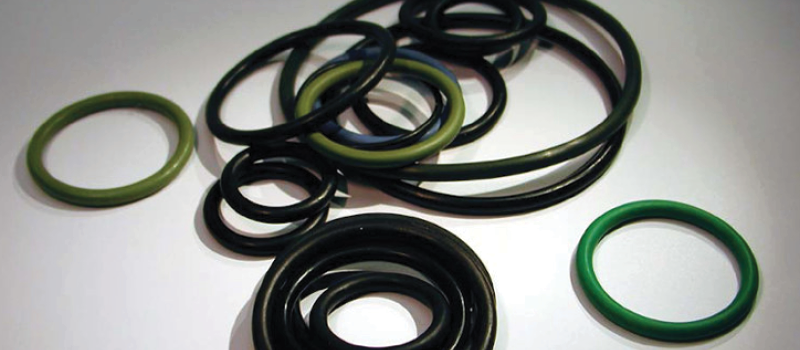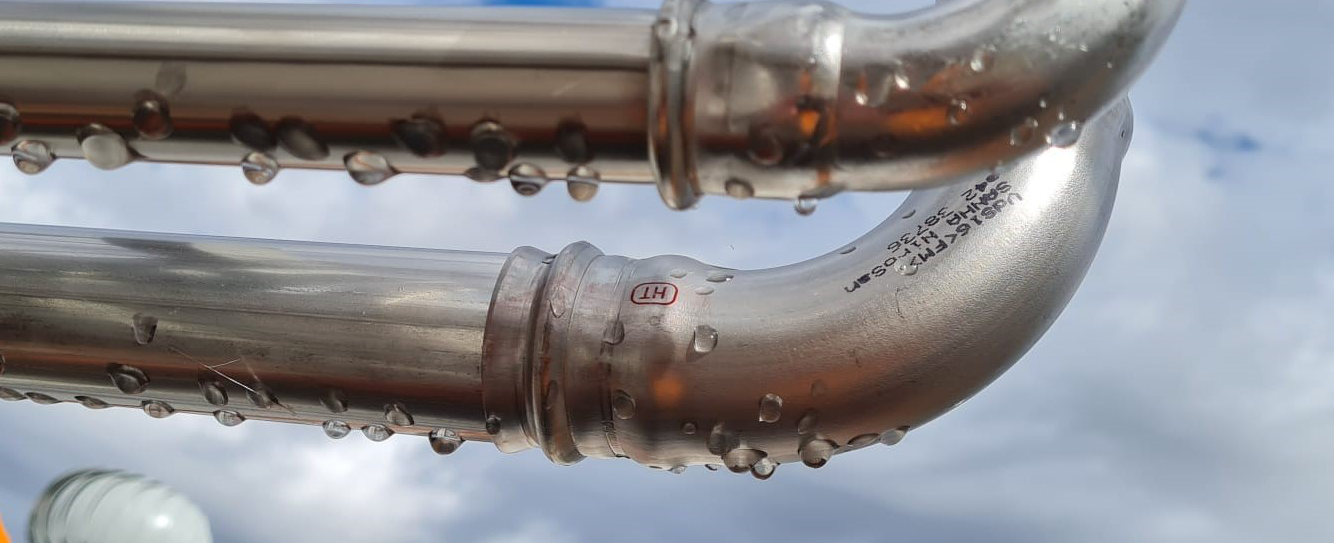
Fluoroelastomers have many uses in various applications and configurations, such as O-rings, U-cups, Lip Seals and gaskets. There are many misconceptions surrounding FKM and Viton™. Many people are under the impression that there is only one type of polymer. Some believe that FKM can withstand temperatures down to -60°C. But the most common misconception by far is that there is a difference between FKM and Viton™. This can lead to misunderstandings when setting up specifications on the right polymer for the application.
First of all, what is FKM?
FKM is the ASTM International (formerly American Society for Testing and Materials) designation for the fluoroelastomer category. It is not a mark of quality. Not all FKM O-rings are equivalent, and some may fall short of desired performance. Especially if they are not properly specified for applications such as steam systems.
Fluoroelastomer is a highly resilient type of synthetic rubber, and its hard-wearing qualities make it a popular choice in the oil and gas industries. The material is widely used when dealing with aggressive fuels and chemicals that would rapidly degrade other rubbers.
However, despite the material’s undeniable usefulness, there is a lot of confusion about its proper name. This can lead to problems when ordering the correct material, especially when customers request Viton™ over FKM, like a customer asking for a Toyota over a car.
Then what is Viton™? How is it similar/different to FKM?
Fluoroelastomer is often referred to as FKM or as Viton. However, Viton™ is a brand of FKM. The Viton™ name is a registered trademark of The Chemours Company (a spin-off company of DuPont). You may see this rubber listed in different places with these two names, but they are all the same. At IBEX Australia, we also use Viton as a generic name for the customer’s convenience.
Viton™ was introduced in 1957 and has done an excellent job marketing its FKM, as the market has been using Viton™ as a generic name for FKM (think Jet Ski, a brand name for personal watercraft). However, Chemours is not the only company that manufactures FKM products.
There are many different FKM players on the market, varying in different levels of fluorine content, viscosity and curing method. Typically, the higher the fluorine content, the better the chemical resistance. However, several low-cost fluoroelastomer imposters on the market may put your operations at risk of seal failure.
Several finished goods manufacturers offer products that are described as “commercial” or “industrial grades” of fluoroelastomer at reduced prices with no supplier guarantee. Some of these products are blends of FKM with hydrocarbon elastomers, such as ethylene-propylene, chloroprene or acrylic rubbers.
Many hydrocarbon rubbers can be blended to take advantage of specific features inherent in the individual rubbers. Fluoroelastomers, in general, cannot be blended with hydrocarbon rubber without significantly degrading its quality, particularly its reaction to heat.
Whether Viton™ makes it or not, the key question is: Can your FKM O-rings withstand steam?
Make sure it can withstand steam and is backed by a guarantee.
Ibex Australia offers FKM O-rings in our High Temperature and Silicone Free range to handle temperatures from -20°C to 200°C and is one of the only press fit systems in the Australian market that comes with an FKM O-ring that can withstand steam*.
*Technical team must be consulted before installation for all steam applications.
For more information on our FKM O-ring applications, please call us on 1300 85 45 20.
The technical recommendations in this publication are general for education purposes and should not be relied on for specific applications without seeking professional consultation. Ibex Australia has taken all reasonable steps to ensure the information contained herein is accurate and useful. Ibex Australia does not warrant the accuracy or completeness of the information. It does not accept liability for errors or omissions.











